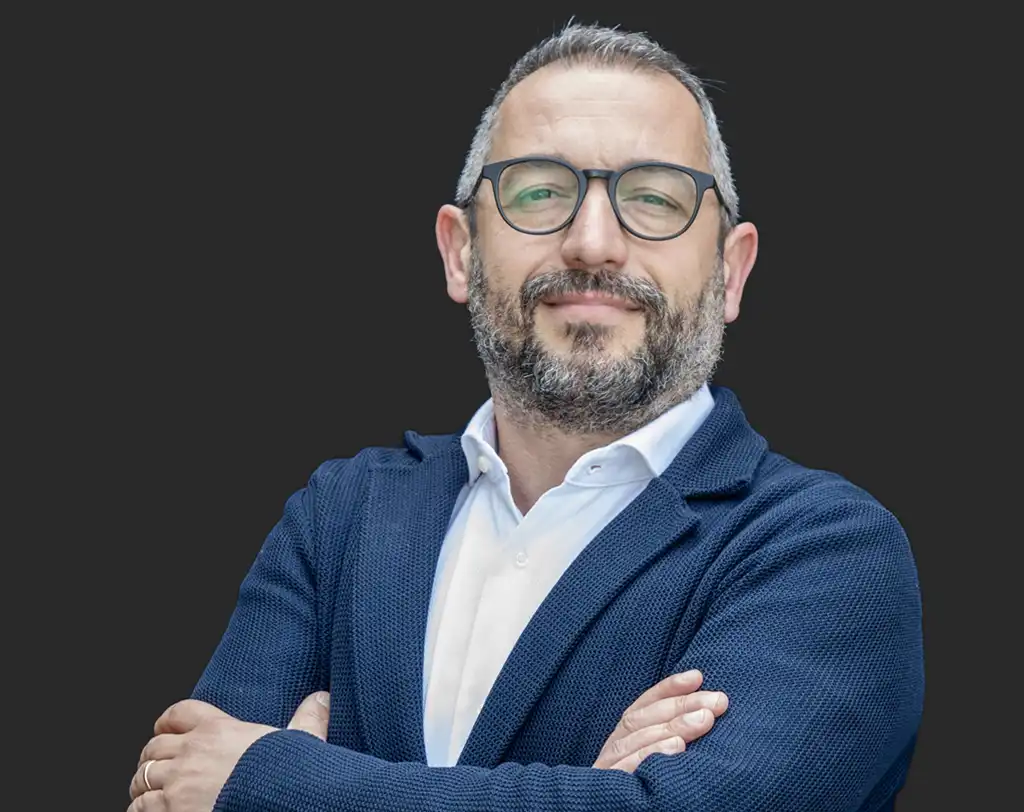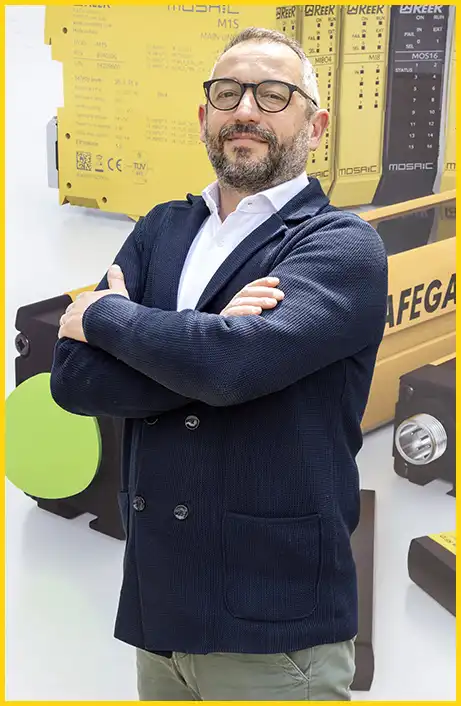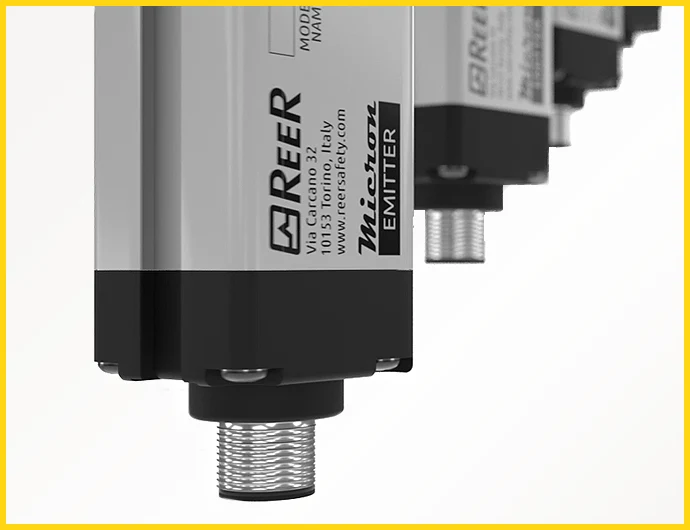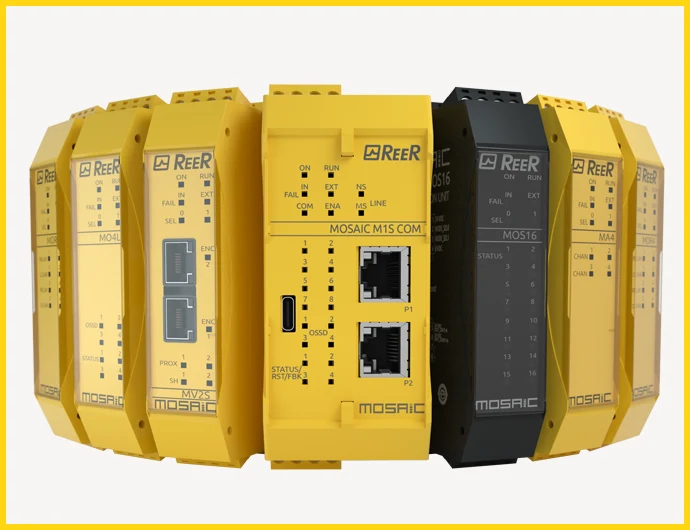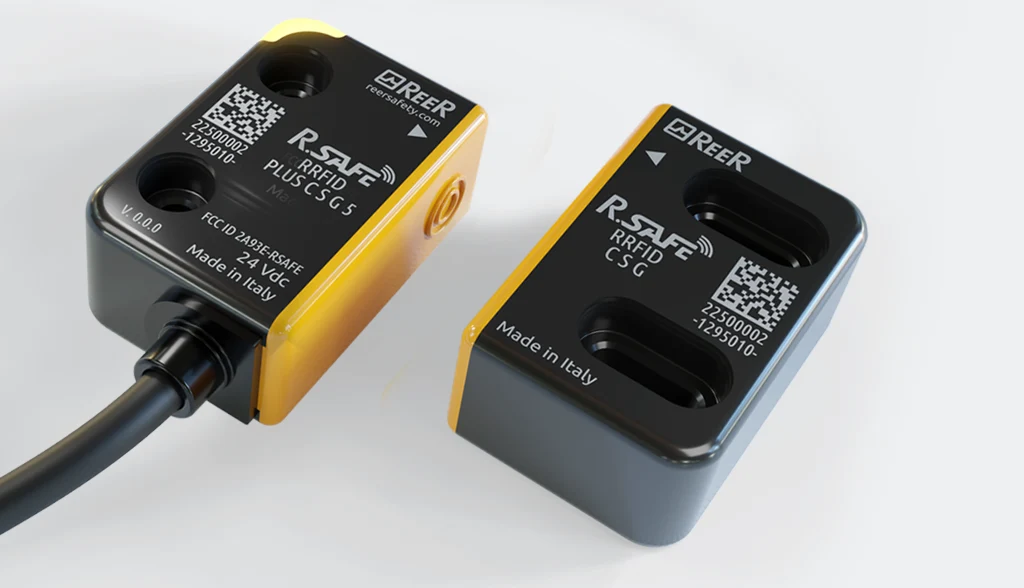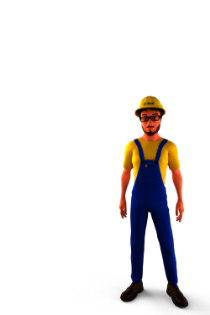What are the tasks of your team and how is it composed?
The team I coordinate – made up of two analyst programmers, an analyst advisor and a pool of external IT consultants – deals with the management, and in some cases the development, of the software used in the company: from management to the individual departments, on which we push hard because we try to provide top-of-the-range software to each entity. Over the years, we have increasingly implemented the Manufacturing Execution System (MES) for Industry 4.0 and a high level of smart production: 90% of the machines in production are interconnected to our management software or departmental software, to provide all the data in real time regarding production, quality, product production times, and reporting of any anomalies and downtime, so that we can intervene in real time. We also run predictive analysis software for sales, MRP for procurement planning. At ReeR we have quite a strong IT platform with a management system that branches out into the various departments; we are trying to make the most of Industry 4.0 on the smart production front and we are committed to improving on the smart services level. We are also in the process of increasing all levels of IT security, because we want to be at the top in this respect as well.
What is your daily work routine like?
Each of us is engaged on certain IT projects, which may also involve working with external consultants, and then on help desk activities to assist with all the day-to-day problems that may occur in the company. On a case-by-case basis, I assign the specific task to the person in the team who is most competent for the type of request received.
Since you have been with the company, how have the activities and technologies applied to your work evolved?
There has been a strong evolution, a consequence not only of technological development but also of ReeR’s great growth in terms of order volumes and turnover, which has been constant over the years. This led to the need to expand the IT team: we started with two and now number four, plus external consultants. There are more and more requests for software and the implementation of new machinery to interface and interconnect with the management system because, as ReeR has grown, so have the requirements of the organisations.
How important is the software component in your production processes?
It is essential and in so many ways. As our devices are safety-related, they must, for example, be traceable down to the last component because, in the event of a failure or anomaly in their operation, we must be able to carry out recall campaigns. Production processes are constantly developing and our products are evolving at the same time. We must therefore continuously update or develop software for both production and the devices themselves.
When did the industry 4.0 process start at ReeR?
In 2016 when, as a consultant, I came to ReeR to install the MES platform, which was already considered Industry 4.0 because it activated a data connection between a department of our company – which at the time was manually completing the electronic boards by installing the chips that the SMD machine could not apply automatically – and the management system. Thanks to the MES, it was possible to keep track of the components, report anomalies and, above all, monitor the exact timing of production to enable the device to be costed correctly: accurately evaluating the industrial cost of a product is not easy and yet it is essential to establish the right marginality at the sales stage. IT has in that case (and so in many others) therefore solved a fundamental, as well as an age-old, problem for company growth. Being able to quantify costs exactly means being able to sell at the right price. In essence, we give efficiency to processes and speed them up, allowing sales prices to remain competitive and giving maximum margins to the finished product.
Is there room for artificial intelligence in ReeR’s IT platform?
The software that enables predictive analyses of market dynamics already contains elements that could be defined as artificial intelligence. Now the concept of AI has evolved and become somewhat extreme: we are looking for something that not only accompanies humans and their intellectual capabilities in performing a task, but even replaces them. And I believe we will get there. In the meantime, we computer scientists must know all the company flows and procedures in order to be able to intervene correctly, give input, improve flows such as those of marketing, sales, production, logistics…
In recent years, ReeR has expanded its range of action by establishing foreign subsidiaries. How has this impacted your work and what challenges has it posed?
We have had to develop software specifications to meet the various needs of large retailers. One example is product labels. When ReeR decided to do laser marking, we bought a dedicated machine and then had to interface it via software with our management system, so that with a simple scan of a bar code we get all the information about the individual device: serial number, production batch, technical specifications and more.
For the branches, on the other hand, we are currently selecting software that allows them to connect their computer systems to ours at head office, to create an extensive network that is useful on several fronts, not least communication and marketing.
How do you ensure the security of ReeR’s IT platform?
First of all, we have adopted a policy system that limits the chances of the system being hacked. We also rely on a pool of professionals and experts who implement high-level protection solutions against cyber threats and risks of all kinds. This is done for each corporate department. My team does not deal specifically with cybersecurity but offers support, of course, to our external consultants.
What are the lines of evolution of your work but also of the projects you intend to implement at software level?
Today we are committed, among other things, to equipping each department with the best specific software for its business needs and procedures: the goal is to enable maximum performance and efficiency in each department. We are selecting top-of-the-range software for sales, purchasing, logistics, business intelligence… and interfacing them with the management system. We are therefore realising a modular system that goes beyond the idea, now relegated to the past, of a single, all-encompassing management software. And it is also for this reason that it is necessary to equip oneself with the best programmes: because they have within them tools capable of linking them to the company’s management systems and thus enabling the exchange of data. And this is precisely the crux of the matter: information technology must be able to enable an ever-increasing flow of data to be managed faster and more efficiently.
How are software changes managed, so as not to put their users in difficulty within the various organisations? And how are training activities carried out?
It is necessary to present the novelty by highlighting the fact that, in exchange for the effort to learn how to use a new IT tool, there will be a simplification or at least greater efficiency in activities. It all starts with a request from the organisation for a function it needs. Software is then developed or proposed on which an internal beta testing phase is carried out and then with the user. Then there is the actual training of the end user, which is usually carried out by the head of the department or by a key user, a person in the department itself who shows better than others an understanding of or aptitude for the use of IT tools. This is an important figure because better than others he can act as a bridge between us in the EDP team and the end user.
We have talked about how you provide support to various corporate entities. But what does your team need today?
We could certainly use more staff, since there are about 250 people in the company who refer to us on an IT level. We are at a ratio of one analyst for every 75 people, although it is true that we have external consultants working alongside us. I hope to have the opportunity in 2024 to train some young people, through an internship, to get to know how all the many business processes work. And this is an important background of skills because if you don’t know how the company works, you don’t know how to give solutions to the needs of the various entities.
What do you look for in one of your collaborators?
First and foremost, a good memory, because there are so many cases to deal with. Apart from computer skills, of course, you must have passion for this kind of work. If you enjoy what you do, it certainly doesn’t weigh you down, if not, everything gets complicated. If you have the right mix of characteristics, skills and passion then you can achieve great results. And ReeR is a company that recognises the quality of your work and rewards it. Moreover, it does not set unattainable goals; on the contrary, it stimulates its employees. That is why there is always a positive and peaceful atmosphere in the company.


 Italiano
Italiano

